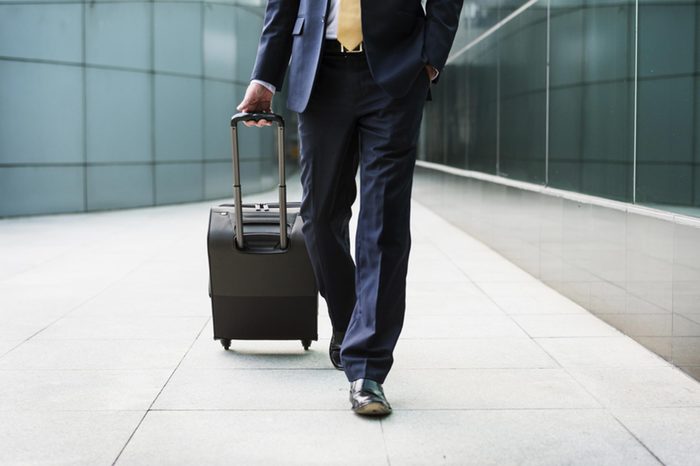
Around 40 percent of us get travel constipation.
According to Connecticut-based gastroenterologist Ed Levine, MD, one big reason has to do with changes in your routine. Different meal times, a shifted sleeping schedule, or jet lag can throw off your body’s circadian rhythm and affect your digestive process. Another factor is the so-called “safe toilet syndrome”—not being able to relax enough to use an unfamiliar bathroom. Depending on the severity of symptoms and the length of your trip, travel constipation can simply be annoying or extremely uncomfortable. Use these natural constipation relief tips to get back on track. Make sure you’re aware of these other reasons you may be constipated besides travel.
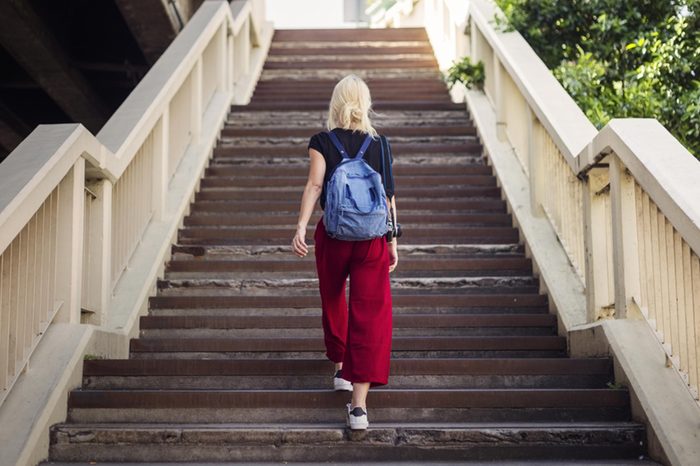
Walk when you wake up
Exercise increases the motility of the gastrointestinal (GI) tract, says Dr. Levine. (That’s why hospital bed rest causes constipation—you’re much less mobile than usual.) Take a morning stroll to sneak in at least a little activity while you’re away, especially if you’re at a beach or lake where there’s not a lot of sightseeing on your itinerary.
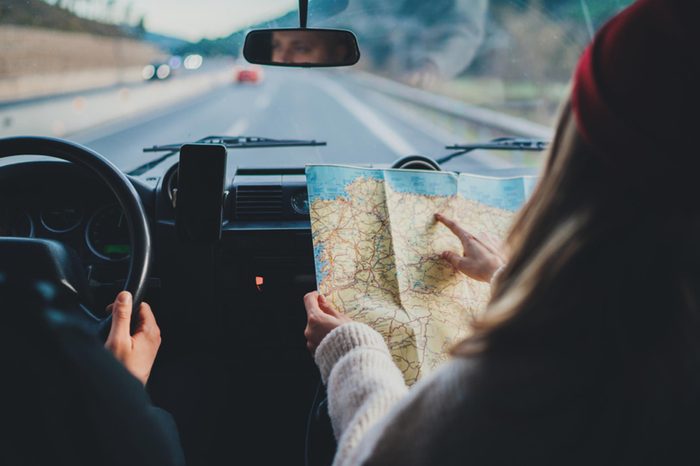
Don’t sit for long stretches
It’s tempting to not stop during a six-hour car ride so you can get where you’re going sooner. But long periods with no movement can put stress on your bowels. Dr. Levine recommends frequent pit stops to stretch your legs, drink water, and give yourself time to use the bathroom if you need it. Try these natural home remedies for constipation relief.
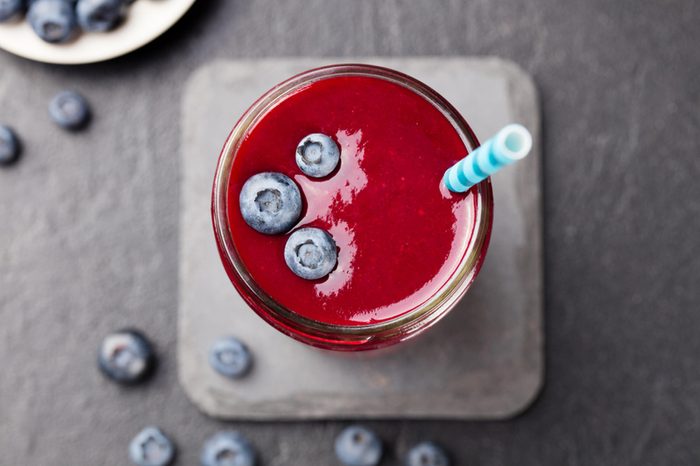
Eat berries with breakfast
Fiber helps fight travel constipation by bulking up stool, making it easier to move through your GI tract. If you’re indulging in decadent vacation meals, it’s easy to forget to include it. But this sudden drop can clog you up, especially if you’re used to eating oatmeal for breakfast and salads at lunch. Commit to eating produce at every meal, plus a snack or two of fresh fruit, to keep your fiber intake adequate. The National Institute of Diabetes and Digestive and Kidney Diseases suggests getting 25 to 31 grams of fiber a day.

Find a routine
If you normally eat breakfast at 7:30 a.m., but wait until 10:30 a.m. while on vacation, you’re setting yourself up for a bout of constipation. “Your stomach distends after meals, which sends a response to the colon to get rid of old stool,” says Dr. Levine. So a drastic change in your eating routine can throw off your usual bowel movement schedule. Going to bed and waking up as close to the times you do at home can also help maintain your circadian rhythm, which helps regulate the hormones that play a role in digestion.

Drink up
Dehydration is a risk factor for constipation, so be sure to take in more water intake than usual, especially if you’re traveling somewhere hotter or drier than the conditions at home. Water also helps fiber to be more effective in normalizing your bowel movements. Make sure to avoid these foods that make constipation worse while you’re traveling.
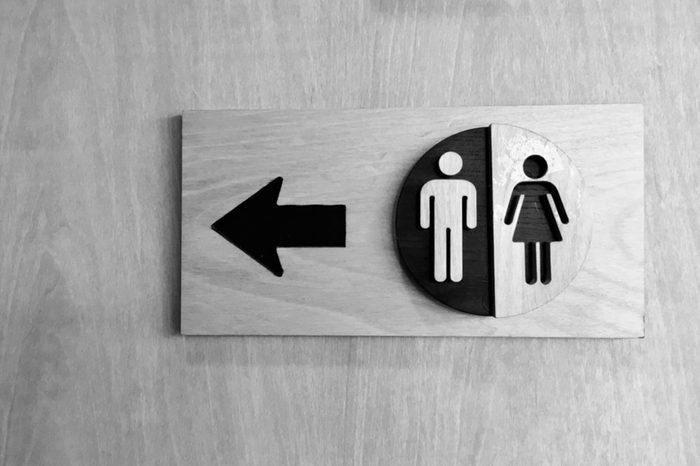
Schedule bathroom breaks
Ignoring the urge to go—say, because you’re waiting in line or you feel weird using a strange toilet—can sometimes lead to constipation. If you know when you usually need a bathroom break, try to plan ahead to be near a place where you feel more comfortable making a pit stop. Next, read about these other ways you can avoid getting sick on vacation.
